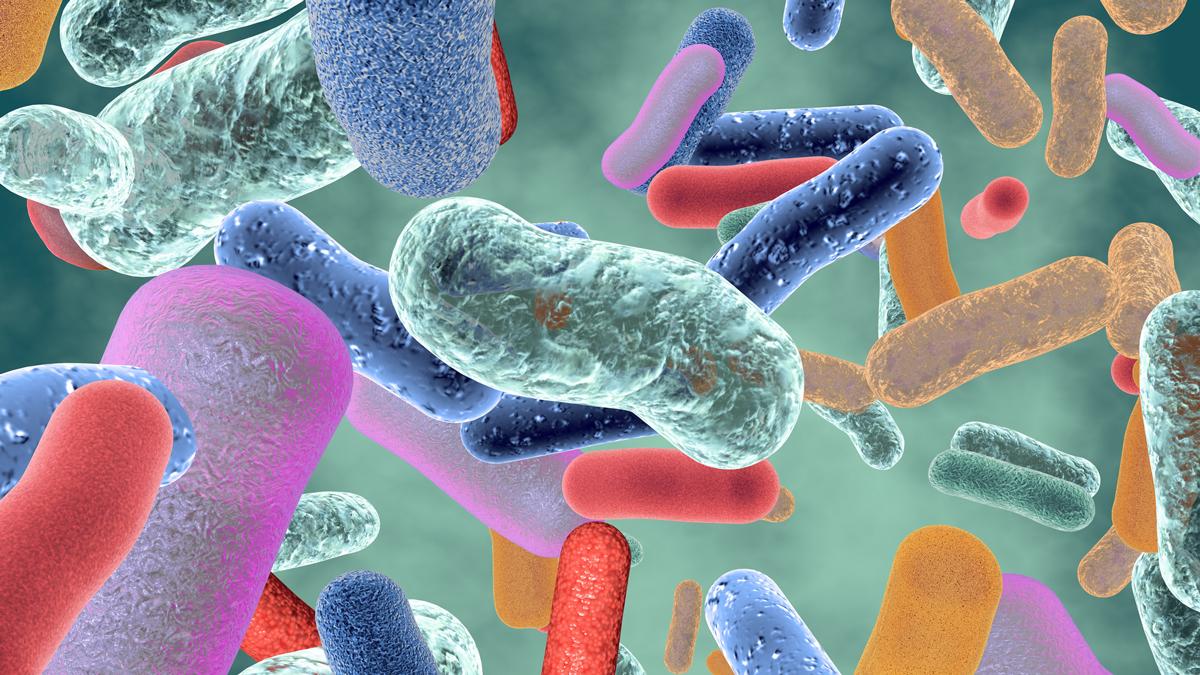Why gut bacteria is the next frontier in medicine

Scientists search far and wide for treatments and cures for the diseases that cause great amounts of human suffering, from cancer to Parkinson's. But the treatments for these and other debilitating conditions may be far closer to home than many realise.
Research has long shown a strong connection between disease and the gut microbiome, and now scientists are learning how to harness specific microbes in our gut to help treat these and other conditions seemingly unrelated to the digestive system.
The gut microbiome and human health
That the gut microbiome - home to some 100 trillion organisms - plays a role in health is undisputed among scientists; numerous studies show that gut microbiota play a role in gastrointestinal conditions, obesity, and nutritional issues, as well as diabetes. This idea is not new; there is evidence that ancient peoples, going back to fourth century China, consumed bacteria-rich human faecal matter to treat digestive illnesses.
And now science has advanced to the point where researchers are able to identify which exact microbes are involved, and leverage them for treatments in the form of pills and other medications. In fact, this year the FDA approved the first microbiota therapeutic drug; the drug will be used to treat recurring Clostridiales difficile (C. difficile) infections, a serious gastrointestinal infection often spread in hospitals.
But recent research has also shown clear connections between gut health and a host of other conditions - and is increasingly revealing how the gut, specifically certain microbes, can be leveraged to treat these conditions in other parts of the body. This is one of the most promising areas of medicine.
This research is mainly possible because of new technologies, such as efficient genome sequencing, high resolution analysis tools, advanced artificial intelligence, and machine learning applications, which are able to examine the genes of the many organisms in the body, and evaluate their role in preventing or curing disease. As a result of this work, researchers have been able to identify specific microbiota that play a positive role in treating disease. The challenge for researchers is to identify the exact strains and functions of microbiota, and to develop ways to utilise them for effective treatments.
The gut: An interactive organ
The gut interacts with the brain, heart, lungs, liver, bones, and other organs and systems in the body. Research shows that in some cases “bad” microbiota in the gut can greatly advance numerous diseases, including certain kinds of cancer, based on microbiota interaction with cell signalling pathways. In other cases, researchers are seeking to use “good” microbiota – microbes that can enhance health by affecting the immune system. Such microbes can provide a boost to the immune system or somehow strengthen positive developments in the body in order to treat some of the most formidable diseases we face.
For example, cancer is an area where gut microbiota treatments show a great deal of progress. Researchers have found in several studies that there may be “an intimate relationship” between microbiota and cancer immunotherapy. For example , the presence of certain microbiota in the body could indicate that an individual was more likely to contract lung cancer, while other microbiota appear to have a regulating effect on the growth of cancerous cells. Therapies could thus be developed that utilise microbes that have this regulating effect, with the goal of slowing or even stopping the spread of lung cancer.
The microbiome in oncology
The efficacy of cancer therapies such as chemotherapy and radiation therapy also appear to be influenced by the presence of certain microbiota, which can reduce regulatory T-cells and enhance the immune response against cancerous cells, thus improving the effectiveness of treatments in chemotherapy. Other microbiota, such as Lachnospiraceae and Enterococcaceae, could reduce the damage caused by radiation therapy.
Certain gut microbiota, say researchers, are “associated with resistance to chemo drugs or immune checkpoint inhibitors (ICIs), whereas supplementation of distinct bacterial species restores responses to the anticancer drugs.” Researchers say that ICIs “have become a promising therapeutic strategy for malignant tumours,” adding that ICIs block inhibitory molecules, such as cytotoxic T-lymphocyte-associated protein 4 (CTLA-4), programmed cell death protein 1 (PD-1) and its ligand 1 (PD-L1), as well as enhancing anti-tumour T-cell activity, and thus providing clinical benefits in many patients with advanced cancers. With that, more research is needed, and scientists are working on developing therapies that utilise the species that could enhance treatments.
Other microbiomic research areas
Other studies show that increased levels of commensal bacteria belonging to the Blautia genus are associated with reduced instances and severity of GVHD - Graft Versus Host Disease – where the body rejects a transplanted organ, or transplanted stem cell or bone marrow. According to researchers, “Intestinal bacteria have long been thought to contribute to GVHD pathophysiology,” but other bacteria – such as Blautia – alleviate and even reverse that condition, potentially a life-saving therapy for the 40% of patients undergoing transplants (allogeneic hematopoietic cell transplantation, or HCT) who will develop GVHD, with a significant level of mortality.
Parkinson's appears to be another area where gut microbiome therapies show a great deal of promise. There is “tremendous communication between the gut, the microbiome and the brain,” according to researchers, and studies show that an unhealthy gut prevents the absorption of nutrients and an increase in bodily toxins – leading to inflammation that could affect the brain as well.
The more inflammation, studies show, the more stress on the brain, and the resulting overstimulation of the immune system just leads to more inflammation and more stress, causing a deterioration of neurons, “manifesting as various neurodegenerative diseases like Parkinson’s disease, dementia, Alzheimer’s, and also just poor cognitive function.” Researchers believe that by strengthening the healthy aspects of the gut – i.e., “helpful” microbiota – they can thus reduce inflammation and the immune system's response, thus reducing the incidence of Parkinson's and other degenerative brain conditions.
Exploring the (positive) unknown
Nearly all the studies on the therapeutic applications of the microbiome emphasise two things: that the area, while extremely promising, is still at a relatively early stage; and that there is still a great deal we don't know, including the functions of many of them – or even how many there are.
Advanced data analysis, along with machine learning, will continue to play a key role in developing this field - finding treatments and even cures at a rate much faster than manual study and analysis ever could.
At the same time, the industry is continuously maturing. The fact that the FDA has started approving drugs based on live human microbes and more patients have started using these drugs, will pave the way for the microbiome to finally play a central role in science and medicine - fulfilling the potential that humans have seen for centuries.
Which bacteria may help with what is no longer a guessing game: it is increasingly known and proven and on its way to providing treatments and cures for some of humanity’s most serious and cruel illnesses.













